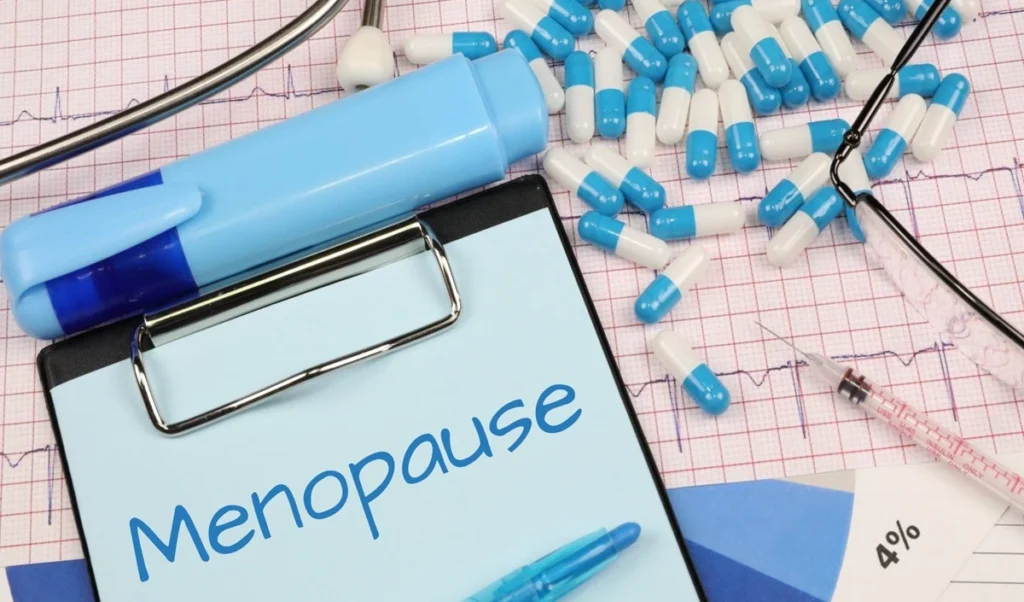
If a woman is repeatedly facing UTIs during menopause or has infected more than 3 times in 6 months or 3 times a year. In such a situation, the woman should immediately talk to the doctor. UTI problem may increase after menopause. According to a survey, every year 15 million UTI cases are reported all over the world. Out of which 80 percent of the cases are of women. More than 2,35,000 people die every year due to UTI. Most cases are usually seen among women aged 16 and 35 years. At the same time, after the age of 40, this problem can be more frequent, because hormonal changes are taking place during menopause.
Why UTI is more common after menopause
The main reason for the increasing UTI incidence in menopause is to reduce estrogen levels. Estrogen plays an important role in keeping the urinary tract tissue healthy. As the level of estrogen is low, the layer of urinary tract becomes weak and thin. At the same time, blood cells fighting infection in urinary tract are reduced.
Also read: Health Tips: This desi drink can help in fast fat loss, start drinking from today itself
What reasons can UTI be done
According to experts, there can be many reasons for UTI risk in addition to menopause. The bladder muscles become weakness with aging, due to which the pelvic organs move slightly forward. Due to which the bladder is not completely emptied and urin is stopped. This increases the risk of growth of bacteria.
Urinary Incontinance and Sexual Activities
Many women also have problems with urinary incontinence with aging. Due to this problem, moisture on pads or underwear can create an atmosphere for the flourish of bacteria.
Sexual activities are not directly the cause of UTI, but it can cause bacterial entry into the urinary tract. This increases the risk of infection.
Symptoms of UTI
Many times urin contains bacteria but its symptoms do not appear. Such bacteria are called asimptomatic bacteriyuria. It is not UTI and does not require treatment. UTI is identified until both bacteria and symptoms are present.
UTI infection can spread in the kidney
In many severe cases UTI can cause kidney infection. If its symptoms include chills, fever and back pain, etc., contact the doctor immediately. Many times, women aged 80 or older may show changes in behavior due to UTI in young women facing medical conditions like dementia. This change can be seen as loss of appetite or confusion.
These methods can help stop UTI
Vaginal estrogen therapy
If UTI occurs repeatedly after menopause, the most effective way to prevent this is the vagina estrogen therapy. It gives a small dose of estrogen in vegina tissue via tablet, ring or cream. This can restore the natural protective layer of the vagina estrogen urinary tract. Due to which the risk of UTI can be reduced to a great extent. At the same time, it is also considered safe for women left from breast cancer, as it does not have the dangers associated with menopause hormone therapy.
Non-antibiotic prevention
Methanemine hippurated makes an environment preventing the growth of bacteria, which can be effective in reducing UTIs.
Low dose antibiotic
If sexual activities cause UTI, antibiotics can be used after making a relationship. However, it may have some of its side effects.
Diet supplements
Cranberry-based products in UTI prevention are scientific authentic authentic authentic evidence. Some compounds present in cranberries prevent bacteria from sticking from the bladder layer. While there is no other benefit. In such a situation, if you also want to use this products, then women should choose a brand with high PACS concentration.
Probiotics
Lactobacillus stress -containing probiotics can help maintain healthy vagina microbiomes. This may also reduce the risk of UTI. But research is still going on on this.
Cleanliness and healthy lifestyle
Pass regular urine
Stay hydrated
Pass urin after sexual relation
Wear light underwear
When to consult a doctor
If a woman is facing the problem of UTI repeatedly at the time of menopause, then you should immediately consult a doctor. On the other hand, if a woman has an infection 2 times in 6 months or 3 times in a year or even more times, then the doctor should be contacted immediately without delay.







